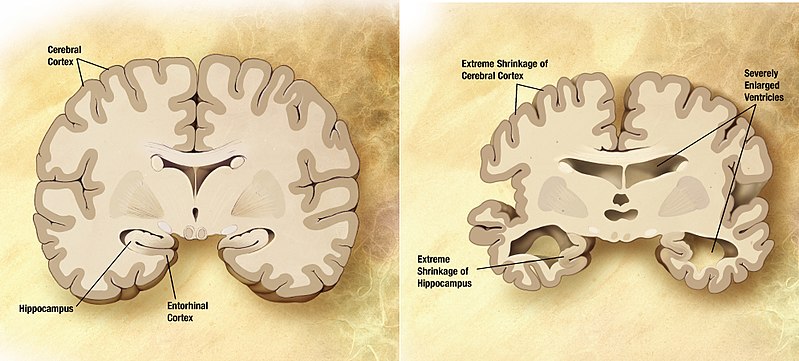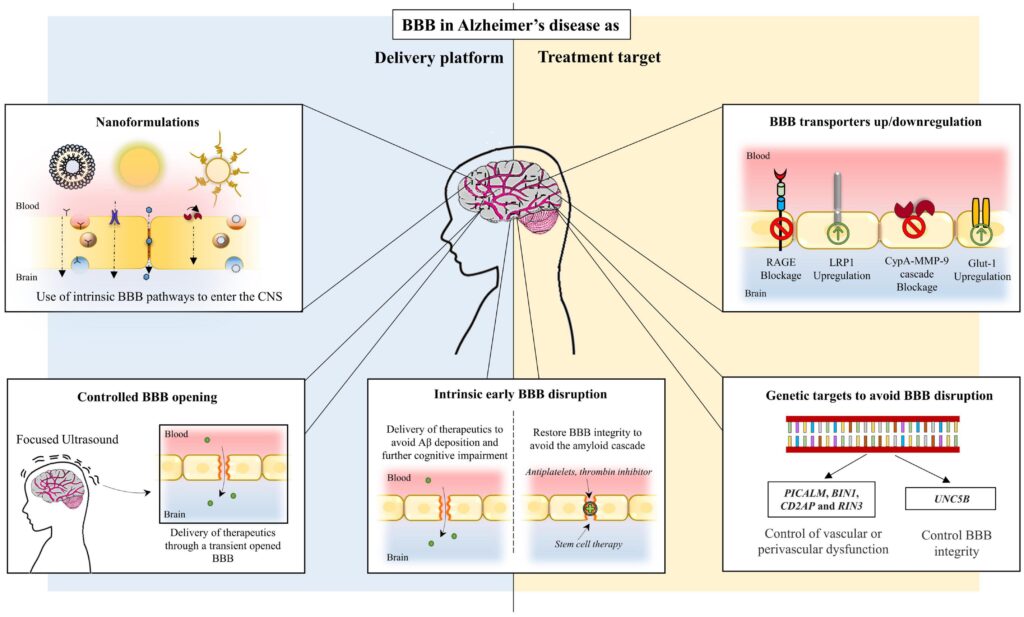Alzheimer’s Disease, often abbreviated as AD, is a progressive neurological condition that affects millions of people worldwide. It is the most common cause of dementia, leading to memory loss, cognitive decline, and behavioral changes. This article provides an in-depth look at Alzheimer’s Disease, including its stages, symptoms, causes, and care strategies.

What is Alzheimer’s Disease?
Alzheimer’s Disease is a degenerative brain disorder that primarily affects older adults. It gradually destroys memory and thinking skills, eventually impairing the ability to carry out even simple tasks. The disease was first identified by Dr. Alois Alzheimer in 1906 when he noticed unusual changes in the brain tissue of a woman who had died of an unknown mental illness.
Causes of Alzheimer’s Disease
The exact cause of Alzheimer’s Disease remains unclear, but researchers believe it results from a combination of genetic, environmental, and lifestyle factors. Some of the key contributors include:
- Genetics: Certain genes are associated with an increased risk of developing the disease.
- Age: The risk of Alzheimer’s increases significantly with age.
- Brain Changes: Abnormal protein deposits, such as beta-amyloid plaques and tau tangles, disrupt communication between brain cells.
- Lifestyle Factors: Poor diet, lack of physical activity, and cardiovascular issues may contribute to the development of the disease.
Stages of Alzheimer’s Disease
Alzheimer’s Disease progresses through several stages, each characterized by distinct symptoms and challenges. Understanding these stages can help caregivers and healthcare professionals provide appropriate support and care.
Early Stage: Mild Cognitive Decline
In the early stage of Alzheimer’s Disease, individuals may experience subtle changes in their memory and cognitive abilities. These changes are often mistaken for normal aging. Common symptoms include:
- Forgetting recent events or conversations
- Difficulty finding the right words during conversations
- Challenges with planning or organizing tasks
- Mild confusion in unfamiliar situations
During this stage, individuals can still function independently but may require occasional reminders or assistance with complex tasks.
Middle Stage: Moderate Cognitive Decline
The middle stage of Alzheimer’s Disease is typically the longest and can last for several years. Symptoms become more pronounced, and individuals require increasing levels of care. Key features of this stage include:
- Frequent memory lapses, including forgetting personal information
- Difficulty recognizing friends and family members
- Increased confusion about time and place
- Behavioral changes, such as agitation, restlessness, or mood swings
- Difficulty performing daily activities, such as dressing or cooking
At this point, individuals may need supervision and assistance with daily living tasks to ensure their safety and well-being.
Late Stage: Severe Cognitive Decline
In the late stage of Alzheimer’s Disease, individuals lose the ability to communicate and respond to their environment. They require full-time care and assistance with all aspects of daily life. Symptoms in this stage include:
- Inability to recognize loved ones
- Loss of verbal communication skills
- Complete dependence on caregivers for basic needs
- Vulnerability to infections, such as pneumonia
- Physical decline, including difficulty swallowing and mobility issues
This stage is emotionally challenging for both the individual and their caregivers, requiring specialized care and support.
Caring for Individuals with Alzheimer’s Disease
Caring for someone with Alzheimer’s Disease requires patience, compassion, and a comprehensive approach. Caregivers play a vital role in improving the quality of life for individuals affected by the disease.
Creating a Safe Environment
Ensuring a safe and supportive environment is crucial for individuals with Alzheimer’s Disease. Some strategies include:
- Removing tripping hazards and installing handrails to prevent falls
- Labeling rooms and objects to help with orientation
- Using locks or alarms on doors to prevent wandering
- Providing clear and consistent routines to reduce confusion
Communication Strategies
Effective communication is essential when interacting with individuals with Alzheimer’s Disease. Tips for better communication include:
- Speaking slowly and clearly using simple words
- Maintaining eye contact and using a calm tone of voice
- Avoiding arguments or correcting mistakes
- Using non-verbal cues, such as gestures or touch, to convey messages
Emotional and Mental Health Support
Individuals with Alzheimer’s Disease often experience emotional distress, including anxiety, depression, and frustration. Providing emotional support involves:
- Encouraging participation in enjoyable activities
- Offering reassurance and validation of their feelings
- Engaging them in reminiscence therapy to evoke positive memories
- Seeking professional counseling or support groups for both the individual and caregivers
Medical and Therapeutic Interventions
While there is no cure for Alzheimer’s Disease, certain treatments can help manage symptoms and slow the progression of the disease. These include:
- Medications that improve memory and cognitive function
- Therapies such as occupational therapy to maintain independence
- Physical exercise to improve overall health and well-being
- Nutritional support to address dietary needs and deficiencies
Role of Caregivers
Caregivers are the backbone of support for individuals with Alzheimer’s Disease. Their responsibilities often include:
- Assisting with daily activities, such as bathing, dressing, and eating
- Managing medications and medical appointments
- Monitoring changes in behavior and reporting them to healthcare providers
- Taking care of their own physical and emotional well-being
Caregivers should seek respite care and support networks to prevent burnout and maintain their own health.
Raising Awareness and Advocacy
Raising awareness about Alzheimer’s Disease is critical to reducing stigma and encouraging early diagnosis. Advocacy efforts focus on:
- Promoting research to find a cure or effective treatment
- Supporting policies that improve access to care and resources
- Educating the public about the signs and symptoms of the disease
- Encouraging funding for Alzheimer’s-related programs and initiatives
Community Resources
Communities play a vital role in supporting individuals with Alzheimer’s Disease and their families. Available resources may include:
- Support groups for caregivers and individuals with the disease
- Day programs and adult care centers offering structured activities
- Memory care facilities providing specialized housing and care
- Hotlines and online platforms offering information and guidance
Future Directions in Alzheimer’s Research
Research into Alzheimer’s Disease continues to advance, with scientists exploring new ways to diagnose, treat, and prevent the condition. Promising areas of study include:
- Developing blood tests for early detection of the disease
- Investigating the role of inflammation and the immune system in brain health
- Exploring the potential of gene therapy and personalized medicine
- Testing innovative therapies targeting beta-amyloid and tau proteins
These efforts offer hope for improved outcomes and a better understanding of Alzheimer’s Disease in the future.





